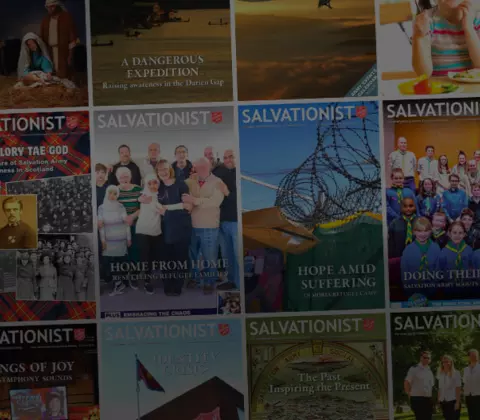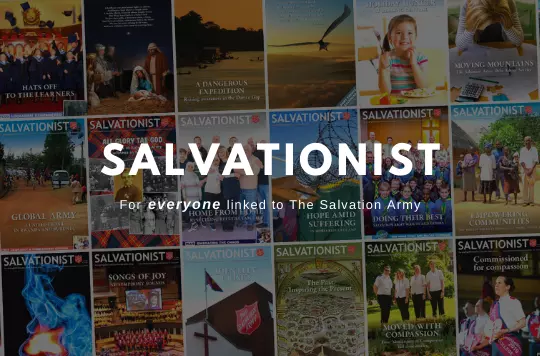
Article of the week: Living in a difficult world
30 October 2021
VIEWPOINT
Jeff Morton considers how we can deal with the flaws in our human nature
HAVING explored the beginnings of creation in a previous article (Salvationist 9 October), I now turn my thoughts to the problem of evil and the questions many people ask: ‘Why do terrible events and activities happen?’ and ‘Why does God not intervene to stop or alleviate them?’
Natural events that the insurance companies describe as ‘an act of God’ are nothing of the sort; they are the result of the natural laws of the planet on which we live.
When people live on natural fault lines or beside an ocean that is prone to hurricanes, then they must be prepared for disasters to occur, however tragic.
This situation is not helped by the profligate way we treat our world. With the unchecked growth in population, gross exploitation of resources and our interference with the natural laws, we are altering the weather of our planet and harming the wellbeing of all life.
As a result we should consider the flaws in human beings, which theologians call ‘original sin’. Although a child is born with the potential for both good and evil, what they become is often shaped by the way they are brought up and the influences they are subject to as they develop.
John’s Gospel states: ‘This is the verdict: light has come into the world, but people loved darkness instead of light because their deeds were evil’ (3:19). As people of faith, we believe that God came into the world in Christ to reveal the way he would have humanity live. John recognises that we have a basic flaw in our make-up that leads us away from the light of goodness to a condition that predisposes us to selfishness or worse. I find it interesting that in the Star Wars films the story talks of the light and dark sides of ‘the Force’ that governs the universe in which the fictional battle between good and evil takes place.
Deep within the human psyche there is a flaw in our make-up that needs to be recognised and rectified.
Jesus says to Nicodemus: ‘No one can see the Kingdom of God unless they are born again’ (John 3:3). When
a confused Nicodemus asks what this means, Jesus replies: ‘No one can enter the Kingdom of God unless they are born of water and of the Spirit’ (v5). So the coming of Jesus is to rectify the imperfections we inherited from our parents – the sins of the fathers visited on their sons and daughters.
The potential for evil has to be subjugated by the good, hence the need to be born again or to exercise control of our natural instincts. This can also be taught as a moral code, which is how most secular people control themselves, but with varying degrees of success.
Christian people, the born-again, have an advantage in that God has imparted to them a spiritual resource that makes this control so much better. The best exposition of what can be achieved with this is found in Paul’s first letter to the Corinthian church, where he states that love is the driving force and basis for Christian behaviour, and without it the other trappings of religion are ineffective.
Paul summarises the qualities of such a life: ‘Love is patient, love is kind. It does not envy, it does not boast, it is not proud. It does not dishonour others, it is not self-seeking, it is not easily angered, it keeps no record of wrongs. Love does not delight in evil but rejoices with the truth. It always protects, always trusts, always hopes, always perseveres. Love never fails’ (1 Corinthians 13:4–8).
These are the heart of Christian life. But to live according to this ideal is not our natural way of living. I have tried and have to admit to failures. In the 50-plus years I have been a follower of Christ in a secular and scientific world,
I have not met anybody who has lived fully by those qualities.
To quote the words of Arch R Wiggins: ‘Though in declaring Christ to the sinner,/ I may all men surpass,/ If love impassioned seal not the message,/
I am naught but sounding brass’ (SASB 683). Thankfully, that love is available to us through the presence of the Holy Spirit promised by Jesus.

From the editor
An early look at the editor's comment

Salvationist
Salvationist is a weekly magazine for members and friends of The Salvation Army

The War Cry
The War Cry is packed with features, reviews, mouth-watering recipes, puzzles and more.